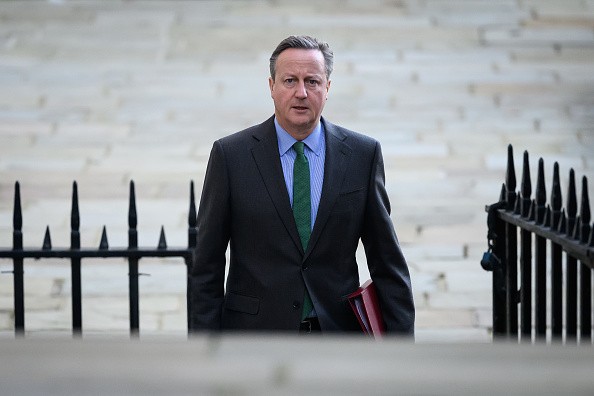UK Foreign Secretary David Cameron will discuss bolstering Ukraine's defenses and finances against Russian aggression with the European Union ministers in light of the ongoing threat of the US Congress refusing to provide additional financial support.
Cameron is scheduled to visit Bulgaria and Poland before meeting a host of EU ministers at a security conference in Munich on Friday.

The UK still hopes that Washington will grant additional Ukraine aid, and it believes the Biden administration can give some assistance regardless of Congress.
However, Cameron will discuss how Poland and other European nations may boost defense production and accelerate their plans to give Ukraine the windfall profits from Russian assets seized by Europe.
On Wednesday, he will visit Bulgaria, the newly elected government in Poland on Thursday in the lead-up to the anniversary of the Russian invasion and the G20 foreign ministers conference in Brazil next week, temporarily switching his gaze from the Middle East.
A video conference between the G7 leaders and the UN security council is also scheduled in New York.
British officials are confident that Ukraine can at least hold its ground and begin to rebuild its economy this year even though they do not anticipate military breakthroughs for the country, partly due to increased opportunities for naval grain corridors in the Black Sea to reopen after the Russian fleet was driven east.
Britain intends to deploy additional French Scalp missiles to weaken Russian air defenses and radar facilities in Crimea, part of an incremental weakening of Russian air superiority.
Cameron has also been informed that Ukrainian resilience to Russian attacks through the winter has been better than expected. More European countries are expected to commit to bilateral security in the coming two weeks, a show of ongoing support balanced by the growing threat of US isolationism.
Cameron Aims Increase Pressure on Russian Economy
Cameron believes that the sanctions, tightening of the oil price cap, and limitation on the export of Russian liquefied natural gas to Europe could increase pressure on the Russian economy, with 7% of Russian GDP now devoted to defense and a drawdown of a third of the liquid element of the national wealth fund over the last year.
At a meeting with fellow leaders in Munich, the foreign secretary plans to speak about European defense production and the special moral case for seizing the profits derived from frozen Russian assets. The G7 has intensified discussions, and EU leaders will likely move forward with their plans to take the windfall profits from Russian investments in Euro-clear in Belgium in the next few weeks.
Cameron said, "Putin believes he can get away with aggression, that he can wait out the west. We have the resources, the economic might, and the expertise. We need to show that we have the will to see this through.
"We must stand up for freedom and match our words with action. On sanctions. On support for Ukraine. On defense production. And we must show unity; we must all stand with Ukraine and let them - and Russia - know that they have our support for the long haul.
Related Article : US Announces $100 Million Military Aid Package for Ukraine








